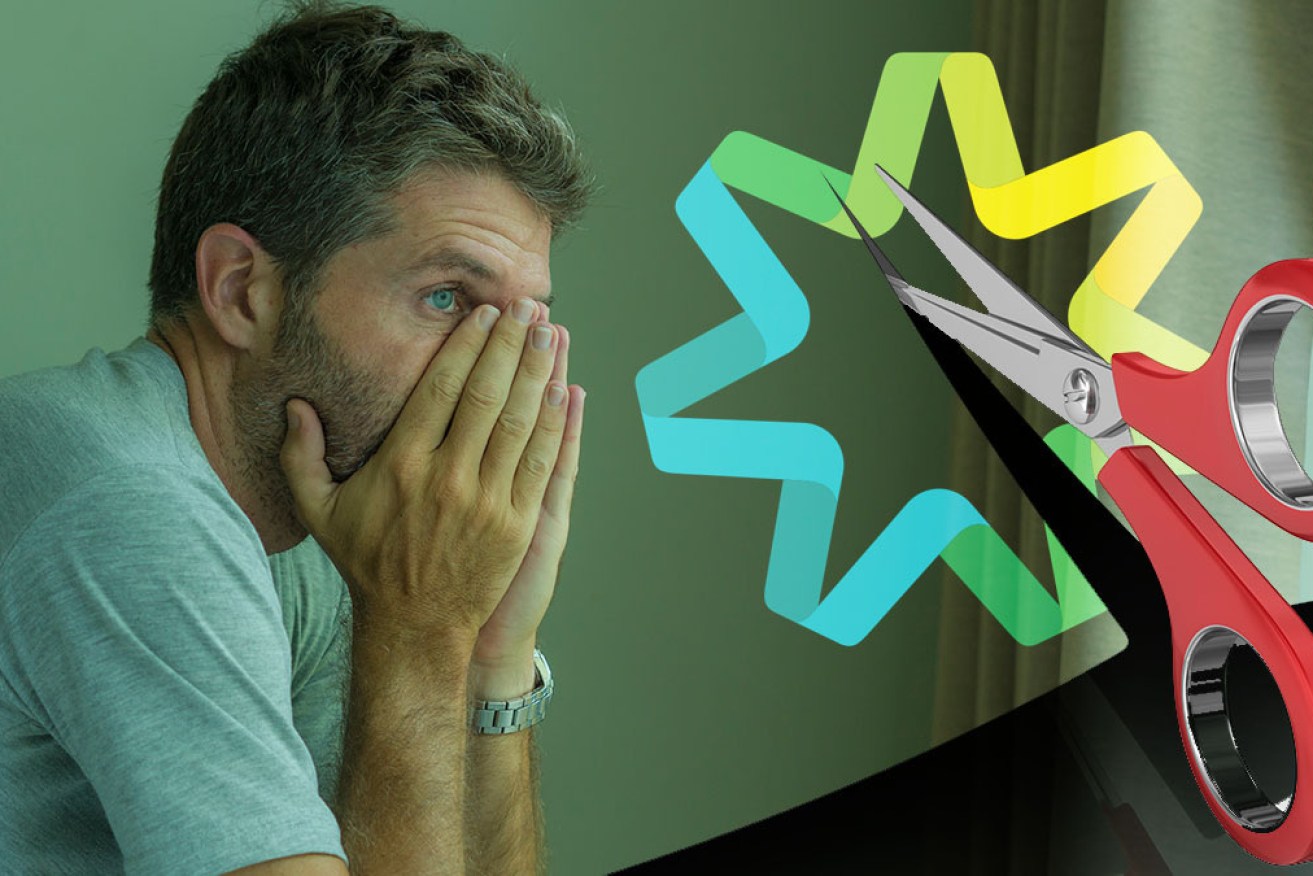JobSeeker examined: How a rate cut may ruin thousands of Australians


Top economists are backing a $100 per week rise to JobSeeker payments. Photo: AAP/TND
A cut to the JobSeeker payment would lead to Australians flooding charities and community groups for help as well as an increase in homelessness, a new report from the peak social services agency claims.
The federal government is under pressure to outline its future plans for the unemployment payment, and not slash it back to its pre-pandemic rate of $565 a fortnight – well below the poverty line.
“It’s absolutely abhorrent the government is holding this over us, like the worst carrot on the worst stick ever,” said anti-poverty advocate and JobSeeker recipient Jeremy Heywood.
“Why would you willingly put your own citizens below the poverty line, if you’ve just pulled them out of it?”

The JobSeeker rate was effectively doubled.
The unemployment payment was effectively doubled with a limited-time ‘coronavirus supplement’ earlier this year, but the rate is set to be slashed from $1115 per fortnight to just $815 from September 25.
On Wednesday, the Australian Council of Social Service (ACOSS) released a report, with evidence from social workers about the benefits of the boosted JobSeeker benefit on their clients.
“The doubled JobSeeker payment has meant that, for the first time in years, very low-income single mothers have been able to buy new winter clothes, replace broken whitegoods, repair cars,” a family services project officer told the report, conducted in July by the Social Policy Research Centre at the University of NSW.
“We are more likely to see an increase in rough sleeping if the additional funds for JobSeeker and JobKeeper cease and people from the private market lose their accommodation,” a housing worker said.
Another family services worker said they feared that without the increased JobSeeker rate, “the burden that will fall onto the community sector will be too great and the system will collapse”.
The report was released to coincide with a national day of action from the Raise The Rate campaign, with supporters being encouraged to contact “their local MPs and the Prime Minister on social media and over the phone” to push for the welfare payment to remain at its higher rate.
“Community service workers are reporting that people who have had access to the increased JobSeeker payment have been able to cover the basics, for many, for the first time in a long time,” ACOSS chief executive Dr Cassandra Goldie said.
“We’ve heard from many people who used to be on the old, low rate of Newstart, that the increase to JobSeeker and other income support has meant they’ve finally been able to access the essentials, like prescription glasses, a fridge and warm jumpers for their children to get through winter.”
Govt comments today that ‘best form of welfare is a job’ are out of touch & heartless. There is 1 job for 12 people #Jobseeker or #YouthAllowance. We are in a recession. #auspol people need help and care #RaisetheRateForGood #coverthebasics #mentalhealth
— Cassandra Goldie🌈 (@cassandragoldie) August 24, 2020
The federal government has not indicated what the JobSeeker rate could be after the pandemic has passed, but it has hinted heavily it won’t revert to the old rate.
Prime Minister Scott Morrison told a youth affairs conference on Monday that a decision would be made in the “not-too-distant future”.
The Labor Party has also been criticised for not naming a figure they would like to see the rate changed to.
On Tuesday, shadow education minister and former deputy leader Tanya Plibersek said she wanted to keep the rate above the pre-pandemic level, but also declined to flag an exact number.
“There is hardly a person in Australia today who believes that the original rate of Newstart, as it was then, was adequate,” she said in response to The New Daily‘s question.
“So we cannot go back to the old inadequate measure of Newstart – it has to be higher. I’m not going to name a figure today.”
Greens senator Rachel Siewert called for the $550 supplement to be locked in long term.
I'm very disappointed that the 2 major parties did not support my motion calling on the Gov to maintain the current rate of the Coronavirus Supplement of $550 a fortnight to ensure unemployed Australians receive proper support#Jobseeker cannot go back below the poverty line
— Rachel Siewert (@RachelMSiewert) August 25, 2020
Kristin O’Connell of the Australian Unemployed Workers Union said it was “not moral” for the rate to be slashed, citing forecasts unemployment will rise as high as 10 per cent by December – meaning many thousands more Australians may be relying on JobSeeker in coming months.
“It’s still a poverty payment. Now it’s just above the poverty line,” she told The New Daily.
Ms O’Connell said AUWU members had reported being able to eat fresh food, pay bills and buy long-delayed essentials, such as car repairs or a new phone, with the increased payment.
“It will be an awful ‘snap back’, to use the Prime Minister’s term, when these harmful things are reintroduced,” she said.
Mr Heywood, also an AUWU member who has been on JobSeeker and its predecessor Newstart for a number of years while also working as a graphic designer, said the increased rate had given hope to himself and many others.
“It has taken a massive weight off my shoulders,” he told The New Daily.
“I’ve had credit card debt following me for years, which I was finally able to pay off. It’s been a massive relief. Just the thought you don’t have to penny pinch every last cent.”








